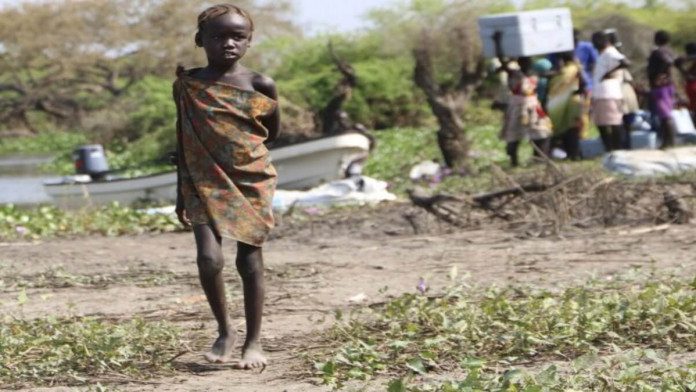News in Brief:
– A new report by UNDP and IFPRI warns of a looming famine in Sudan due to the ongoing conflict’s devastating impact on rural areas.
– The report calls for urgent action, including food aid, agricultural support, and improved access to basic necessities, to prevent famine and support vulnerable populations.
A new report by the United Nations Development Programme (UNDP) and the International Food Policy Research Institute (IFPRI) paints a bleak picture of Sudan, where a raging armed conflict threatens to push the country into famine.
Titled Livelihoods in Sudan amid Armed Conflict, the study details the devastating impact of the year-long conflict on rural communities, highlighting critical issues like food insecurity, disrupted incomes, and limited access to basic necessities.
It reveals an alarming situation regarding food security. Nearly 60% of rural households are facing moderate or severe food insecurity, with some areas – particularly West Kordofan, South Kordofan, and Blue Nile – at a heightened risk of famine later this year.
Livelihoods shattered
The conflict has severely disrupted rural livelihoods, with over half of households reporting disruptions to their farming activities. This has led to a significant drop in income and widespread economic instability. The report also highlights the plight of households forced to relocate due to the conflict, who often face substantial income losses.
The study exposes the dire situation regarding basic needs in rural areas. Many households lack proper housing, sanitation facilities, and electricity, further compounding their hardships.
It emphasises the need for immediate and coordinated action to avert a full-blown famine and support the most vulnerable populations. Key recommendations include:
- Delivering urgent food and humanitarian aid to those facing severe food insecurity and income loss.
- Providing essential support to agricultural livelihoods by offering farmers subsidised inputs, repairing irrigation infrastructure, and promoting resilient farming practices.
- Restoring market functionality by rebuilding infrastructure, establishing secure trade routes, and helping local businesses resume operations.
- Improving access to basic needs like clean water, sanitation, and electricity, especially in conflict-affected regions.
- Implementing economic interventions through cash transfer programs to alleviate financial burdens and enable access to necessities.
- Establishing and expanding social protection programs to support vulnerable groups, such as women-led households, those with low levels of education, and daily-wage earners.
Overall, the report underscores the importance of achieving a ceasefire and ensuring unhindered humanitarian access to effectively respond to the crisis. Long-term resilience-building efforts are also crucial to prevent future escalations.



